Notebook
-
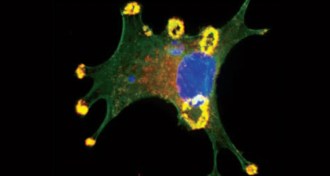
-
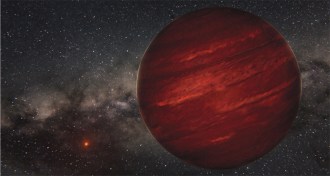 Astronomy
AstronomyYoung, hot exoplanet takes title for longest year
Newly discovered exoplanet sits a whopping 2,000 times farther from its star than Earth does from the sun.
-
 Life
LifePolio could return after near eradication
Polio was considered eliminated in the United States by 1979, but since then vaccination rates have slipped, prompting concerns about reemergence.
-
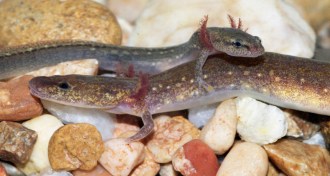 Animals
AnimalsNew salamander stays young at heart
A new salamander species was long mistaken for the juvenile form of another.
-
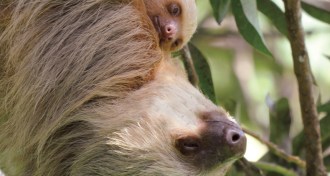 Animals
AnimalsFor upside-down sloths, what goes down can’t come up
Upside-down sloths have to hold their organs up and their food down.
By Susan Milius -
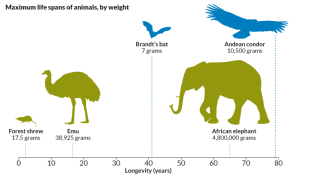 Animals
AnimalsFly more, live longer
An examination of animal lifestyles reveals that the most important factor linked to longer life is the ability to fly.
-
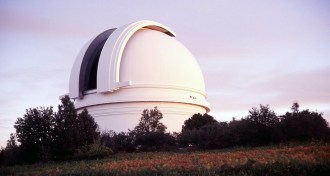 Cosmology
CosmologyRevamping the size of the universe
Despite new telescopes and technology, no one knows whether the universe is infinitely large or even if what has been observed is the only universe that exists.
-
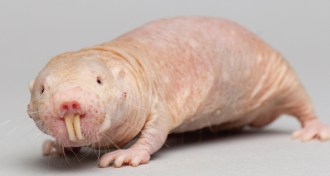 Animals
AnimalsHow to milk a naked mole-rat
For the sake of science, Olav Oftedal has milked bats, bears and a lot of other mammals. But a naked mole-rat was something new.
By Susan Milius -
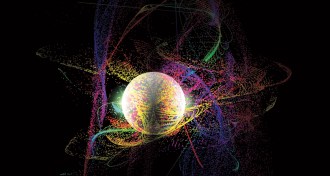
-
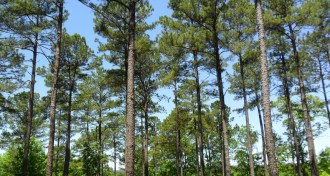 Paleontology
PaleontologyLoblolly sets record for biggest genome
At 20 billion base pairs, the loblolly pine is the largest genome sequenced to date.
-
 Science & Society
Science & SocietyAnti-leukemia vaccine reported hope of future
Fifty years ago, Science News Letter reported on the promise of a vaccine to prevent leukemia. No preventive vaccine has come to pass, but leukemia vaccines as treatments has yielded promising results.
-
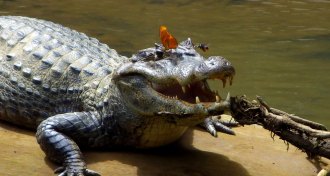 Animals
AnimalsCaiman tears make a salty snack
An ecologist observed a bee and a butterfly hovering around a caiman, engaging in lacryphagous behavior, slurping up the crocodilian’s tears.